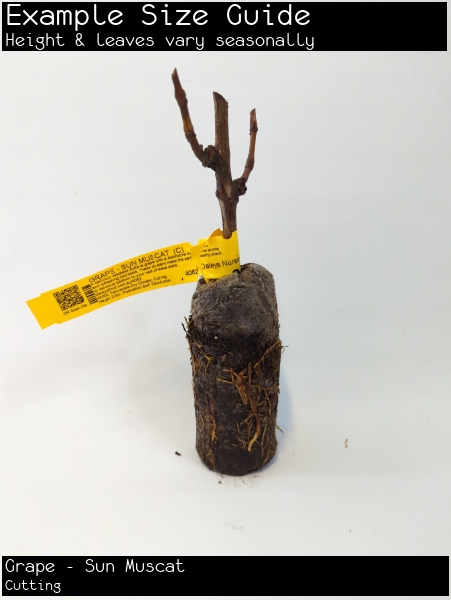Grape - Sun Muscat
Vitis vinifera$19.75 ($19.75-$34.00 choose a size)
Specifications of Grape - Sun Muscat
Preferred Climate Warm Temperate, Arid (Dry)Learn About Climate Zones
Grown From CuttingLearn About Propagation Methods
Max Height (when in the ground with good conditions) 2-5m
Plants required to Pollinate 1 (Self Pollinating)Learn about Pollination
Can it Handle Frosts? Yes
Amount of leaves in Winter? No Leaves (Deciduous)
Quarantine Restrictions to these Areas QLD, SA, WA
Suitability in Pots Yes
Water Requirements Moderate Watering
Is it a Dwarf Fruit Tree? Can be pruned to 2m
Time to Fruit/Flower/Harvest 2-3 Years
Sun or Shade Full (Sun:80%-100%)
Preferred Soil Type Good Drainage
Soil pH Moderately Alkaline (7.4-8.0)
Customers also bought
These plants are often purchased together. Also check plant information for suitability in your orchard.





















